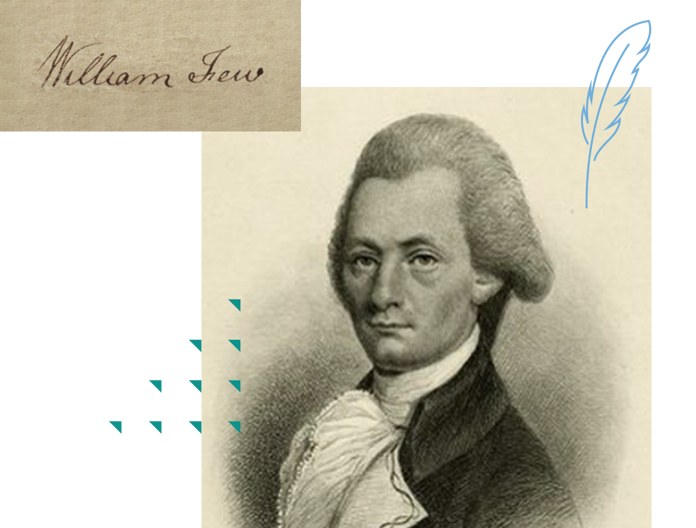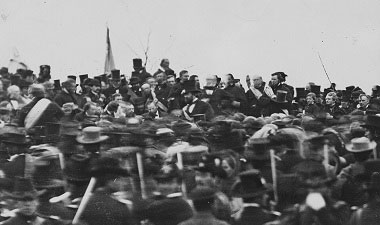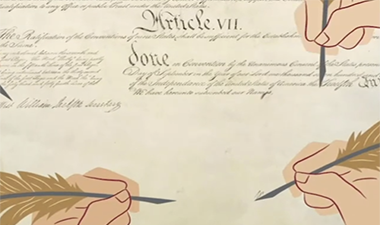Summary
William Few was one of two delegates from Georgia to sign the Constitution. He served in the Senate and later on the federal bench.
William Few | Signer of the Constitution
2:27
Biography
William Few, grandson of an immigrant from England, was born on his father’s modest Maryland farm in 1748. When a series of droughts struck the region in which the Fews farmed, his family and many of their neighbors moved to the North Carolina frontier. William was a child of ten at the time. His father and his older brother soon joined the frontier farmer rebellion against North Carolina’s coastal elites. The rebels, known as the Regulator Movement, were defeated in the Battle of the Alamance. The Few farm was destroyed during the fighting, and William Few’s brother was hanged as a traitor. Soon afterward the family moved once more, this time to Georgia.
Although he had received only a minimal education, Few somehow managed to acquire enough legal knowledge to pass the Georgia bar. He set up his first practice in Augusta. In the 1770s Few cast his lot with the colonial revolutionaries. When war came, his leadership skills became evident, and despite his background, he was made a lieutenant colonel of the dragoons. His elevated status allowed him to move into politics during the war years and Few served two terms in the Georgia assembly. By 1780, he was representing his state in the Continental Congress.
When the convention was called in Philadelphia, 39-year-old Few was appointed as one of six state delegates from Georgia. Two of the men chosen never attended the convention; two others left before the convention adjourned. Only Few and fellow delegate Abraham Baldwin would sign the Constitution. Few himself was frequently absent during July and part of August because he was also serving in the Continental Congress. When he was present, Few was a silent member, a listener rather than an orator. James Marshall wrote of Few that “he was one of those men few and far between, who effect more by solid weight of character than many can by eloquent speech or restless action”. Though he made no speeches, Few did support the creation of an “energetic government” with extensive powers. And, as a member of the Confederation Congress, Few helped win Congressional approval to submit the Constitution to the states for ratification.
After ratification was won, Few was elected one of Georgia’s first Senators. He served from 1789 to 1793, then returned home to serve once more in the state assembly. In 1796, this self-taught lawyer was appointed to the federal bench. For unknown reasons, in 1799 he resigned his judgeship and moved to New York City.
Few’s career after this move was impressive. He served in the legislature, as inspector of prisons, as alderman, and as a director of the Manhattan Bank. He graciously donated to several philanthropic causes. In his Autobiography of 1816, Few recalled the obstacles that had faced the men who wrote the Constitution. Three weeks into the debates and deliberations, he wrote, the convention stood on the brink of dissolution. “It was an awful and critical moment,” he declared. Only a commitment to accommodation saved the convention and “after about three months’ arduous labor, a plan of Constitution was formed on principles which did not altogether please anybody” but were agreed upon by most.
William Few died in 1828 at the age of 80 and was survived by his wife and three daughters.








